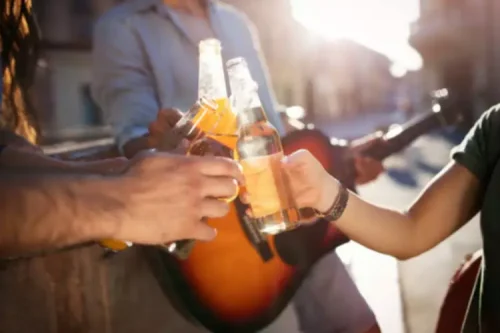
The most common symptom of migraine is the intense throbbing head pain. This pain can be so severe that it interferes with your day-to-day activities. It can also be accompanied by nausea and vomiting, as well as sensitivity to light and sound.

Tension headache
Figure 2 shows data on two individuals selected at random among those who tracked more than 600 days. In each case, individual predicted probabilities are compared to the population predictions (in purple) after updating Model 2 to account for all available tracked data for each individual (not only the first 90 tracked days). Neither the interaction term nor the presence of migraine on day‐2 were significant and they were removed (one at a time) from the final model (Model 2).
Migraine triggers

For this reason, it is important to see a doctor about migraine symptoms or chronic headaches, with or without drinking. Headaches, including migraine, are treatable with the right combination of medication and lifestyle adjustments. Migraine episodes can be a periodic inconvenience, or they can be debilitating. The most severe migraine attacks may last up to 3 days and make it impossible to do anything. People who get hangovers that trigger a migraine may wish to avoid alcohol with high levels of congeners.
Food as trigger and aggravating factor of migraine. Neurological Sciences, May 2012.

Observations with missing information in any of the independent variables were handled with listwise deletion, that is, only complete cases were used for parameter estimation. alcohol causes migraines Medications can help prevent some migraines and make them less painful. The right medicines, combined with self-help remedies and lifestyle changes, might help.
If you take OTC or prescription headache medication, follow the label instructions and warnings carefully
- For instance, for some people with migraines, just a small amount of alcohol can lead to a cocktail headache, whereas others can tolerate alcohol at the same level as people who don’t get migraines.
- If you consistently experience severe headaches after drinking, consulting a healthcare professional for personalised advice and guidance is a good idea.
- Alcohol also causes our blood vessels to expand and increases blood flow, which could contribute to migraine attacks.
- The most severe migraine attacks may last up to 3 days and make it impossible to do anything.
More than a third of the participants said that alcohol had this effect, with about 78% naming red wine as the most common alcohol trigger. Research shows that people with migraine may also experience related symptoms during a hangover. Reducing or eliminating alcohol may reduce the frequency of migraine attacks. It may also help eliminate triggers that tend to co-occur with drinking, such as dehydration and sleep deprivation.
- They involve throbbing pain that generally occurs on one side of the head.
- Attacks can last for several hours or days after the headache stage eases.
- About two-thirds of people who drink alcohol develop these headaches.
- It’s also possible that your alcohol-induced nausea is a gastrointestinal issue.
- It may also be helpful to keep a food journal to help narrow the list down of food and drink triggers.
Support Group: How to address anxiety while managing your drinking
In fact, to deny the beneficial effect of a low dose of alcohol in a wide number of people, who can also have a higher risk of cardiovascular disease like migraine patients [74, 75], is not medically appropriate. This was an observational prospective cohort study among individuals with migraine who registered to use a digital health platform for headache. Eligible individuals were aged ≥18 years with EM who consumed alcohol and had tracked their headache symptoms and alcohol intake for ≥90 days. In females with migraine, there was a significantly higher percentage of nonconsumers of alcohol than that reported in national studies on the population, using the same parameters, in females of the same region [35] (Fig. 2). Of the 58 nonconsumer patients, 16 were abstainers but the others have consumed some type of alcoholic drinks during their life without the development of headache.
An allergy to any of these ingredients can cause nausea, as well as rash, swelling, stomach cramps, and difficulty breathing. Migraine affects an estimated more than 10% of people worldwide, occurs most often among people aged 20 to 50 years, and is about 3 times more common in women than in men. In a large US survey, 17.1% of women and 5.6% of men reported having migraine symptoms. If you want to avoid a hangover headache, the best thing you can do is think before you drink. It may be that avoiding or moderating alcohol intake is the best decision for you.Talk to your healthcare provider about alcohol use, which can have serious health and social consequences.
Tension-type headache
- Variable alcohol intake had 10.6% missing values on day‐1 and 11.6% on day‐2; migraine on day‐2 was missing in 7.4%.
- It will be crucial to have access to reliable resources on migraine as you work to manage this disease.
- Plan to discuss the FDA’s safety guide for medication use during pregnancy.
- If you’ve called out red wine as a common headache trigger, it may be best to eliminate vin rouge from your drink cabinet altogether.
